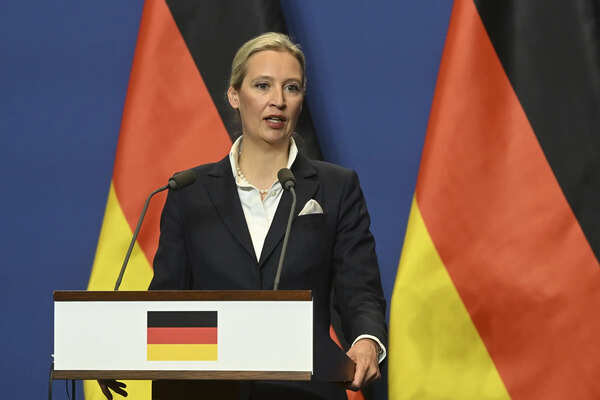In the German federal elections of 2025, The Alternative for Germany ( AfD ) won an historic victory, capturing roughly 20.8 % of the vote and establishing itself as the second-largest political force in the nation. This efficiency represents a significant improvement over its prior outcomes, with the party gaining important popularity, particularly in eastern Germany.
Despite these gains, the AfD remains politically isolated, as mainstream parties—including the election-winning Christian Democratic Union ( CDU) and its Bavarian sister party, the Christian Social Union ( CSU) —have ruled out any collaboration with the far-right party. Essentially, this stance properly forbids the AfD from getting involved with the government.
AfD’s Election Success: Essential Statistics and Regional Benefits
- Nationwide Vote Promote: About 20.8 %, positioning it as the second-largest group.
- Comparison to Previous Elections: This outcome signifies a significant increase from previous appearances, reflecting growing help.
- Regional Strength: The AfD has become the strongest political power in eastern Germany, outperforming other events in state for as Saxony, Thuringia, and Brandenburg.
- Enter Surveys: Youth Voters ‘ Engagement: Exit polls show that 18-24-year-olds have a strong support for the AfD, which suggests a move in voter preferences toward nationalist and anti-establishment platforms.
The Role of Elon Musk and International Endorsements
The AfD’s surge has been amplified by common testimonials from high-profile images, somewhat Tesla CEO Elon Musk and U. S. Vice President JD Vance. Their assistance has drawn international attention to the group’s plan, mainly through social media platforms.
Musk, who has progressively aligned himself with right-wing politicians, officially endorsed the AfD, stating:” Just the AfD is keep Germany”.
This confirmation from one of the world’s most influential companies, along with aid from JD Vance, has helped justify the AfD’s anti-immigration and patriotic message, especially among liberal and libertarian-leaning citizens.
Elements Contributing to AfD’s Performance

Alice Weidel, the Alternative for Germany ( AfD ) party’s candidate for chancellor, and Hungarian Prime Minister Viktor Orban, not pictured, hold a press conference following their meeting in the government headquarters in Budapest, Hungary, Wednesday, Feb. 12, 2025. ( Szilard Koszticsak/MT I via AP )
Anti-Immigration Stance
With calling for shut borders and limitations on asylum seekers, the AfD has dominated political discourse, particularly in areas where demographic shifts and economic difficulties are at play.
Public Discontent with the Ruling Coalition
The past government’s handling of financial problems, rising energy prices, and emigration has led to voting dissatisfaction, which the AfD has successfully capitalized on.
Influence of Social Media and High-Profile Testimonials
Platforms like X ( formerly Twitter ) have played a significant role in amplifying the AfD’s message, with endorsements from figures like Elon Musk increasing the party’s visibility.
Support from Young Voters
Young voters, a demographic that has typically leaning toward left-wing events, have a clear preference for the AfD. This change may get attributed to political correctness and economic uncertainty.
Social Isolation and Coalition Leads
Despite its political achievement, the AfD remains socially isolated. Mainstream functions, including the CDU/CSU, have absolutely ruled out forming partnerships with the AfD. Friedrich Merz, the CDU leader, emphasized that important policy differences, especially those relating to the European Union and international policy, are barriers to any potential cooperation.
Coming Prospects for the AfD
Looking back, AfD co-leader Alice Weidel has expressed passions to further enhance the side’s status, stating:” We may overwhelm the CDU/CSU. And we will finally be given a mission to rule. While the AfD’s recent gains indicate a significant change in Germany’s social scenery, the party faces continued challenges, including legitimate scrutiny, public protests, and staunch resistance from the political establishment. In the coming years, how well will the AfD you maintain its speed and overcome obstacles to entering government will depend in large part on this.




